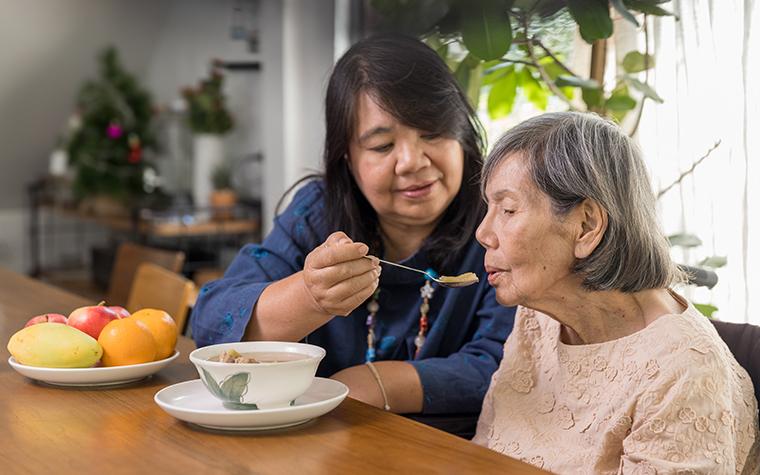MU Extension offers 'Powerful Tools for Caregivers'
COLUMBIA, Mo. – At some point in your life, you may be called upon to become a caregiver for someone with a chronic condition, perhaps for an aging parent, an ailing spouse or a child with special needs.
“To be an effective caregiver, you have to be able to take care of yourself,” says Naomi Meinertz, University of Missouri Extension state specialist in aging. MU Extension offers a six-week program that helps caregivers do just that.
Powerful Tools for Caregivers (PTC) was developed in Portland, Ore., in the late 1990s and is now operated by Iowa State University. MU Extension health and human sciences specialists began offering the course in the spring of 2025.
The responsibilities caregivers take on can be overwhelming – administering medication, driving to doctor’s appointments, keeping up with housekeeping, providing emotional support, dealing with insurance and more, Meinertz says. Research shows that caregiving can exact a serious psychological and physical toll over time, affecting the caregiver’s relationships, work, finances and overall well-being.
“Caregivers often focus so intensely on their loved one that they neglect their own needs,” she says. “Learning self-care helps them maintain their ability to provide long-term support. Many feel guilty taking time for themselves. Of course, caregivers know how to take care of themselves, but the PTC program reminds them to put that knowledge into practice and gives them ‘permission’ to take care of themselves.”
PTC was originally developed for caregivers of adults with chronic conditions. It later expanded to include classes for parents of children with special needs. The program focuses on self-care, managing emotions, boosting self-confidence and accessing community resources. During six weekly classes, participants learn tools for reducing stress, setting goals and making tough decisions. Two certified instructors jointly lead the classes, which typically have about 6-15 caregiver attendees.
“PTC also helps caregivers recognize when they’re feeling stressed or overwhelmed so they can use communication tools to let others in their care network know how they are feeling and be assertive in asking for help,” Meinertz says.
“The group format encourages interaction, so participants regain their self-efficacy by knowing that they are not alone in their care role. Understanding that others are in the same situation helps to validate their feelings and remind them that they are capable.”
“Published studies have demonstrated that the program helps caregivers reduce their feelings of caregiver burden, increase caregiving self-efficacy and improve communication skills,” she says. “This program has shown the same effectiveness in both in-person and virtual formats.”
The virtual program is available statewide by any of the trained PTC leaders. If you’re interested in having the in-person program presented in your local community, contact one of MU Extension’s trained PTC leaders and they will connect you with a leader in your region.
For more information, visit muext.us/PTC. Select “Faculty and Staff” for a list of PTC leaders.
